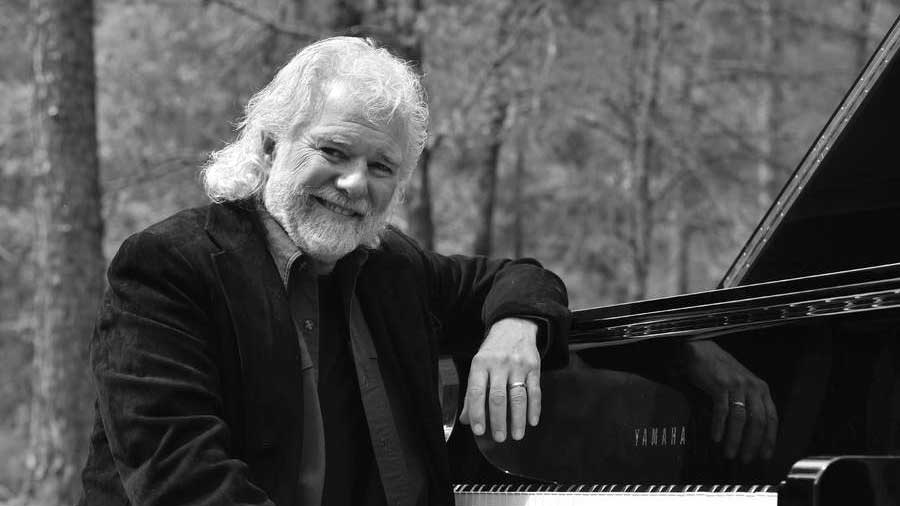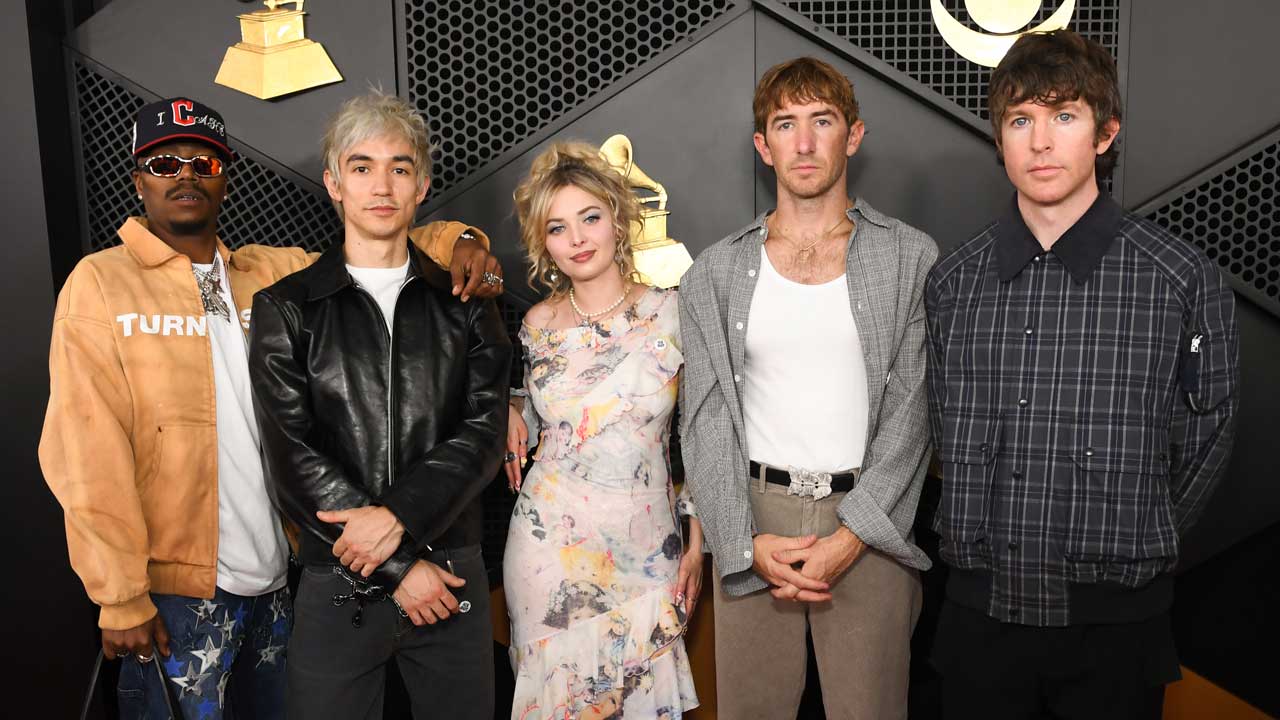Chuck Leavell has played with the Stones for decades but every night is still a thrill
Rolling Stones pianist and musical director Chuck Leavell on good times with the Allman Brothers and flicking Mick Jagger the 'V' sign

Having earned his spurs playing keyboards alongside Dr John while still in his teens, Alabama-born Chuck Leavell joined the Allman Brothers Band as they reached their commercial peak.
Following a stint with Sea Level, he was taken on board by the Rolling Stones in 1981, and has appeared on every album since 1983’s Undercover. In addition to having worked alongside Eric Clapton, Chuck Berry, the Black Crowes, David Gilmour and George Harrison, he’s also one of the world’s leading authorities on sustainable forestry.
It was more a case of keys than trees this summer, though, as he set out with the Stones in celebration of the band’s 60th anniversary.

How did a southern upbringing shape the man you became?
My hands and fingers have a southern accent. I’m grateful for growing up in the south because my musical influences were so diverse: country, rhythm and blues, soul, Delta blues, gospel and, because I’m a child of the sixties, the British invasion. My first band did a lot of Stones and Beatles, but never in my wildest dreams did I think I’d ever play with these guys.
What attracted you to the piano?
My mother. I was the youngest of three, so when I was about five my older brother and sister would be in school, my dad out working and mum played the piano. She’d set me up there and say: “What would it sound like if there was a big storm outside?” And I’d rumble down on the low end, do some lightning strikes. “What would it sound like if you were mad at a friend?” So music’s always been a thing with emotions, feelings and colours, not just chords and notes.
Sign up below to get the latest from Classic Rock, plus exclusive special offers, direct to your inbox!
You were invited into the Allman Brothers Band to replace the late Duane Allman, who died in 1971.
They first went out as a five-piece with no replacement for Duane – a gutsy, ballsy thing to do. You can’t really replace Duane Allman, so Dickie Betts had to step up, take on all guitar duties, and he’d never really played slide before. When they came back from tour they were emotionally spent, physically drained, and took a break.
Gregg [Allman] wanted to do a solo record, which I was called in to do, and during the process after-hours jams started with the rest of the Allmans. We were improvising, things were developed, and Phil Walden, the band’s manager, called me into his office and said: “The guys feel the band’s going in an interesting direction. Would you like to join?” Yes, I would.
How were you first approached by the Rolling Stones?
The Stones wanted some new faces in 1981, and [promoter] Bill Graham mentioned my name. I got a call from [original Stones pianist] Ian Stewart, and within thirty-six hours I was on a plane for the audition. And it went very well. I stayed three days, and thought I had the position, but they kept Ian McLagan for that tour.
Later that year they came to Atlanta and Stu called me: [adopts British accent] “We’re going to be in your backyard. Do you want to come along and have a bash?” So I got up and sat in on a few songs. Towards the end of the year Stu called and said: “We’re going to tour Europe next year, and everyone’s decided they want you.” So that was when I first got the official position.
You arrived into the Stones at a time of internal conflict between Mick and Keith.
Things were tense. It wasn’t the best time in their relationship at all. But even with that tension, making music was a process that they knew they had to complete. It wasn’t just an obligation to a label, it was about making music. I really admire how they found a way to work through it.
And that speaks volumes about why we are celebrating sixty years of the Rolling Stones. They’ve always found a way to make it work, and at this day in time the band is closer than ever. We lost Charlie [Watts] last year, which was so tragic, and we all still sting very much from it, personally and musically. We think about him every day.
Steve Jordan, who has replaced him on drums, has clearly studied Charlie’s style meticulously.
Steve’s more of an aggressive player. Although Charlie played with heavy sticks, he had a delicate touch, but he got a big sound with those heavy sticks. Steve hits a little bit harder from beginning to end, and gets an equally big sound because of the way he dynamically plays the drums, but he always honours Charlie, and it’s beautiful the way he does. Little nuances like Start Me Up’s missed snare hit, one of the great mistakes of rock’n’roll… Steve knows where every one of those little bits is, and he performs them all.
You’re also the Rolling Stones’ musical director.
I scoff at it a bit, because Mick and Keith are the musical directors as far as I’m concerned. I started taking notes during the Steel Wheels tour rehearsals and gradually built up handwritten chord charts, which turned into loose-leaf notebooks. I set tempos, became the go-to guy for arrangements, which started to translate into cues on stage.
Being a jazz drummer in a rock band, Charlie would sometimes need cues as to when a breakdown was coming. And if Mick’s working the crowd he might look back and I can give him a signal to keep rolling, or here comes the verse [gives a V sign], here comes the chorus [forms his finger and thumb into a C shape], that kind of thing. I also put together the set-lists.
You’ve worked with some of the biggest names in music. What’s your ultimate ‘is this really happening to me’ moment?
Every night with the Rolling Stones – and I’m serious, man. People say: “Don’t you get tired of Start Me Up or any of those songs you’ve played a thousand times?” And the answer is: “Hell, no!” Are you kidding me? I look over here and I’m like: “Is that Keith Richards? Is that Ronnie Wood?” I’m thrilled every time.
Chuck Leavell’s latest album Chuck Gets Big (with the Frankfurt Radio Big Band), is out now via BMG.

Classic Rock’s Reviews Editor for the last 20 years, Ian stapled his first fanzine in 1977. Since misspending his youth by way of ‘research’ his work has also appeared in such publications as Metal Hammer, Prog, NME, Uncut, Kerrang!, VOX, The Face, The Guardian, Total Guitar, Guitarist, Electronic Sound, Record Collector and across the internet. Permanently buried under mountains of recorded media, ears ringing from a lifetime of gigs, he enjoys nothing more than recreationally throttling a guitar and following a baptism of punk fire has played in bands for 45 years, releasing recordings via Esoteric Antenna and Cleopatra Records.
